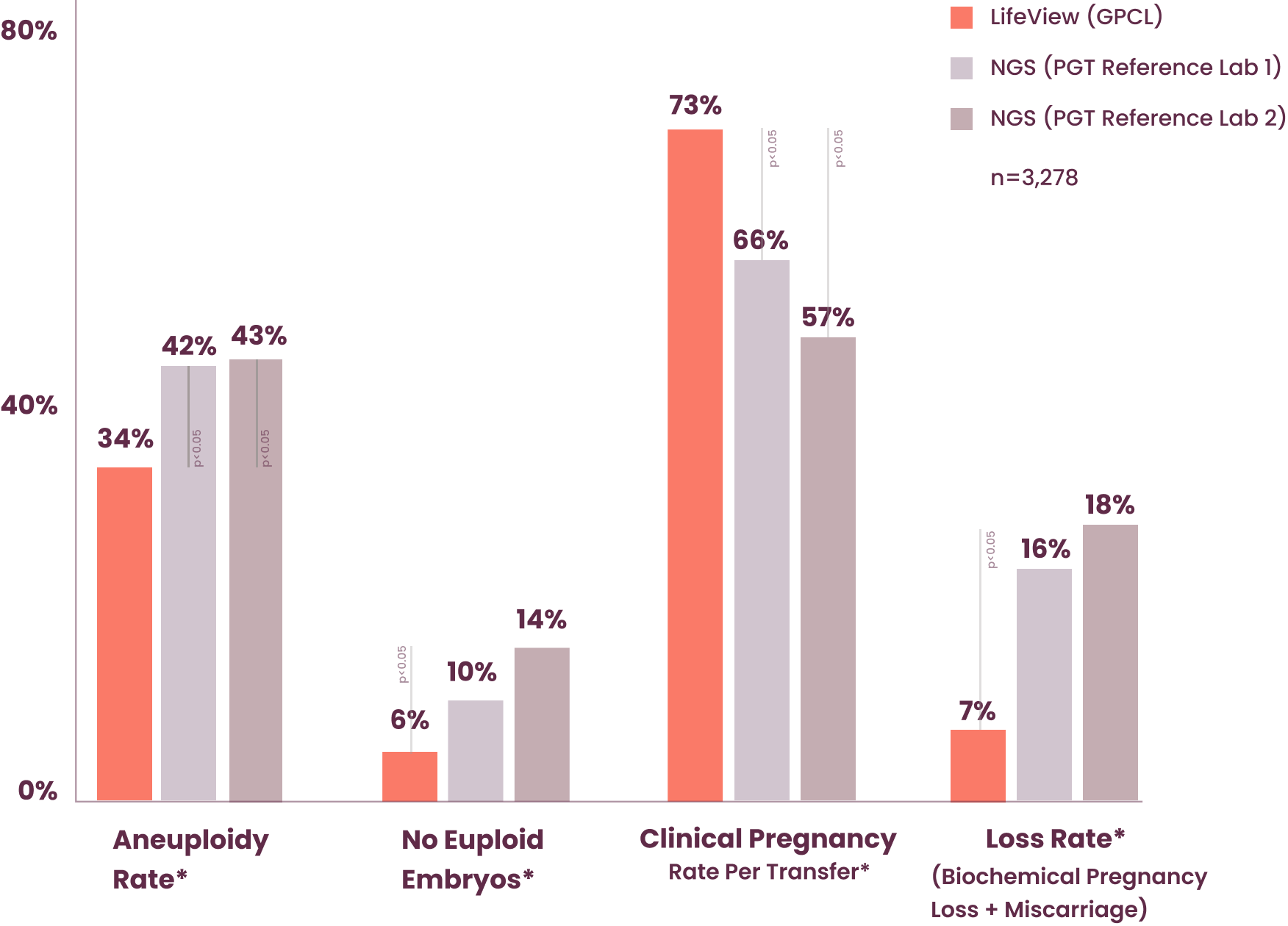PGT-A
A routine screening to determine if an embryo has the correct number of chromosomes.


Embryos having the incorrect number of chromosomes, referred to as aneuploidy can lead to health problems including intellectual disability and birth defects. Aneuploidy is the cause of 60% of miscarriages and can prevent pregnancy altogether.
All couples are at risk for aneuploidy. The risks increase with a woman’s age and for women over the age of 35 the risks are significantly higher.
PGT-A screens embryos for aneuploidy so that you and your care team can select an embryo with the correct number of chromosomes (euploidy) for transfer, increasing your chances of success and a healthy child.
Below is a graph of three different labs that perform preimplantation genetic testing (PGT) on IVF embryos.
The orange bar represents Genomic Prediction’s Clinical Laboratory where LifeView is used. The other two bars in the graph represent two other commonly used PGT laboratories.

Aneuploidy - when an embryo has an abnormal number of chromosomes.
Euploid - when an embryo has the normal amount of chromosomes. These are the embryos that clinicians hope to use for transfer.
Talk to your doctor about using LifeView PGT-A.
Our client specialist will work closely with your IVF team to address your specific needs.
Embryos are produced through an IVF cycle. A small sample from each embryo is sent for a LifeView analysis.
Once the analysis is complete, a report with your results is sent directly to your IVF team. Lifeview Genetic Counselors are always available to further discuss your report.